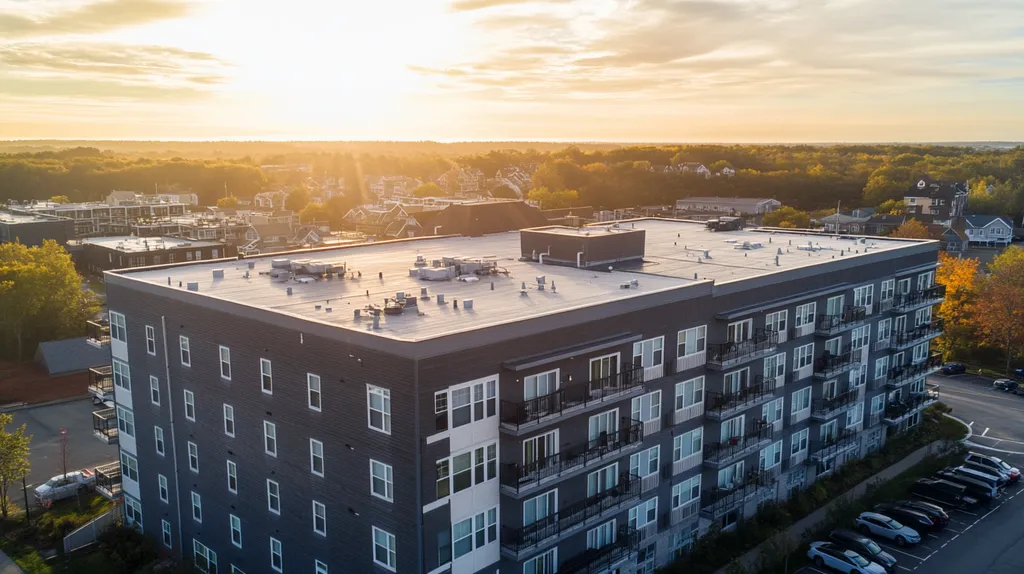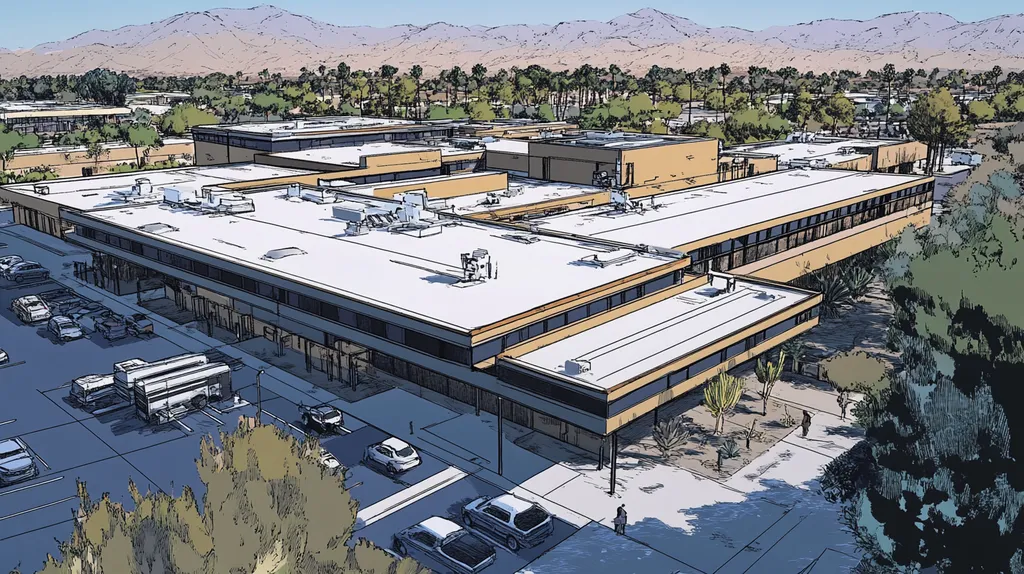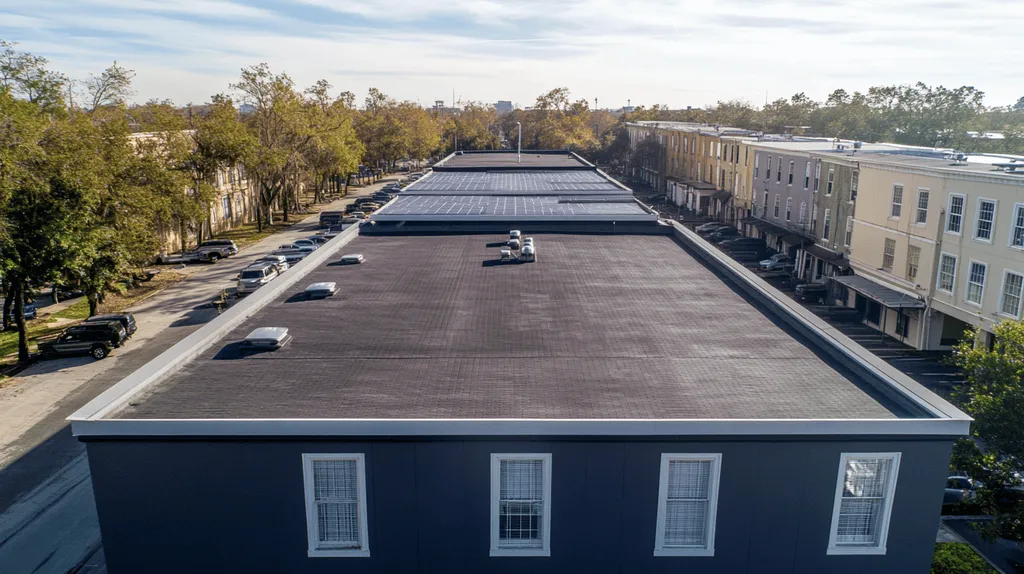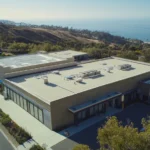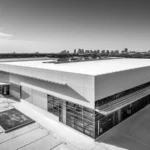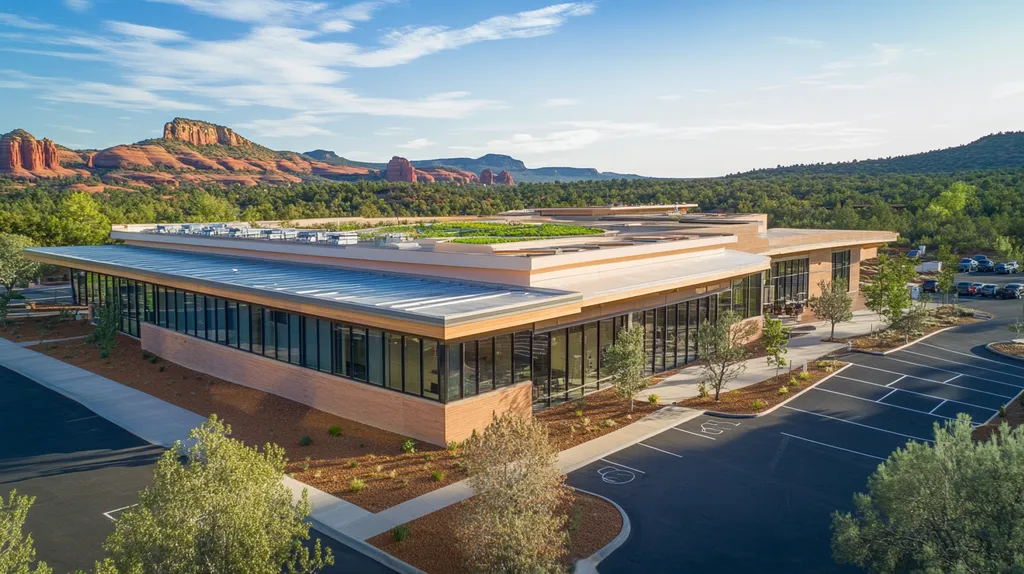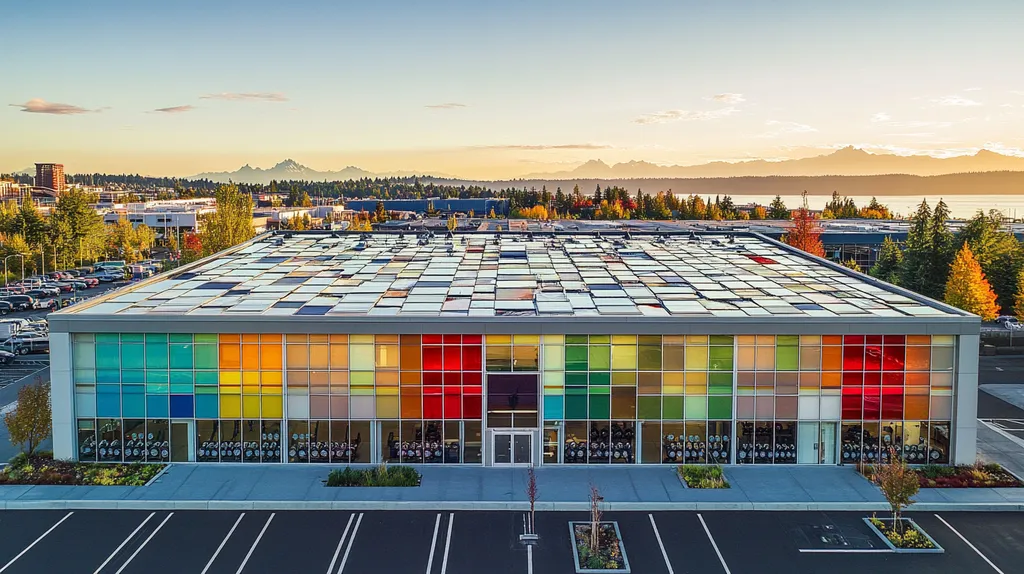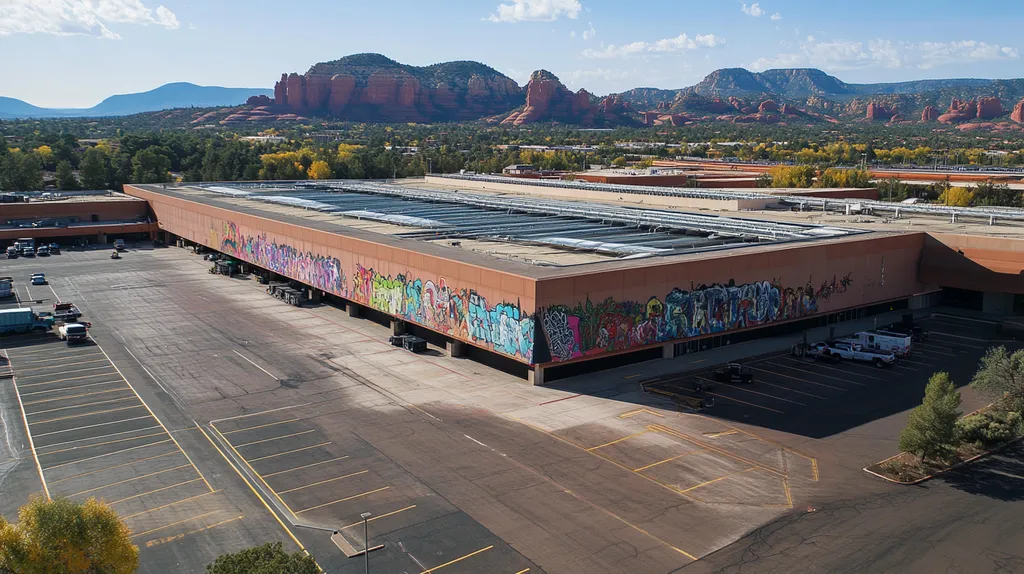Commercial roof warranties represent a critical yet frequently mismanaged aspect of property maintenance, with industry data showing that 40% of claims are denied due to contractor negligence and oversight.
The financial impact of these denials often exceeds $100,000 per incident, highlighting systemic issues in how warranties are handled across the industry.
This analysis examines widespread contractor practices that undermine warranty effectiveness, exploring documented patterns of mismanagement and identifying evidence-based solutions that can protect property owners’ investments.
SECTION 1: CURRENT PRACTICES
For property owners and facility managers, understanding commercial roof warranties is not just beneficial; it is essential. Poor management of warranties can result in repair costs soaring into tens of thousands of dollars. This section delves into the various types of warranties available, standard coverage and exclusions, and the critical roles played by contractors and manufacturers in the warranty landscape.
Types of Commercial Roof Warranties
Commercial roof warranties are generally categorized into two main types: material warranties and workmanship warranties. Material warranties safeguard against defects in the roofing materials themselves, while workmanship warranties ensure the quality of the installation. Recognizing these differences is vital, as various products and installation practices can significantly influence a roof’s lifespan.
In addition to these categories, some warranties provide specialized coverage, such as protection against hail damage or ponding water. However, the terms and duration of these warranties can vary widely among different manufacturers and contractors. Property owners must thoroughly review warranty conditions to make informed decisions.
The market has also seen a trend towards longer warranty periods, sometimes extending up to 30 years. While this may seem attractive, these extended warranties often include intricate clauses that can complicate the claims process. Therefore, property owners should carefully evaluate whether such lengthy coverage truly aligns with their roofing requirements.
Selecting the right warranty involves not just understanding current offerings but also considering the long-term implications of roofing decisions. Property owners should engage with qualified professionals to effectively navigate these various warranty options.
Standard Warranty Coverage and Exclusions
Most commercial roof warranties typically cover protection against material defects and leaks. However, a variety of exclusions can undermine their perceived value. Common exclusions include damage due to water accumulation, inadequate maintenance, and natural disasters.
For instance, if a roof leaks due to standing water, the warranty may not cover it unless adequate drainage systems are installed. This is a crucial area of misunderstanding for property owners, who may wrongfully assume that all leaks are covered under their warranty. Recognizing exclusions is vital for effectively managing risks associated with roof upkeep.
Periodic inspections and maintenance are often mandatory to keep warranties valid. Some warranties require documented maintenance actions, yet many contractors fail to communicate these responsibilities clearly. Such gaps in understanding can result in denied claims when issues arise.
Therefore, property owners must be well-informed about warranty exclusions and maintenance obligations to preserve their claims. A proactive approach can mitigate unexpected costs and alleviate stress when unforeseen problems emerge.
Contractor and Manufacturer Roles
The roles of contractors and manufacturers in the context of commercial roof warranties are distinct yet interdependent. Manufacturers typically offer warranties as part of their product packages, but the quality of workmanship provided by contractors is equally vital for warranty compliance. Some manufacturers only honor their warranties if installations follow their specific guidelines.
However, conflicts can arise if contractors fail to adhere to these guidelines. In such situations, manufacturers may reject warranty claims, leaving property owners exposed to additional costs. This underscores the importance of selecting reputable contractors with a proven track record of quality work.
Communication among all parties—contractors, manufacturers, and property owners—often lacks clarity. Many contractors do not discuss warranty details in depth, leading to significant misunderstandings regarding coverage and obligations. Thorough conversations can prevent conflicts and ensure all parties are aligned.
Furthermore, contractors frequently act as intermediaries during warranty claims. Their ability to facilitate communication with manufacturers can be crucial for a speedy resolution to any issues that arise. Establishing a strong partnership with trusted contractors enhances the likelihood of a smooth claims process.
SECTION 2: SYSTEMIC ISSUES
The reliability of commercial roof warranties faces serious threats due to widespread mismanagement in the industry. A staggering 40% of property owners have reported challenges in claiming their warranty coverage, with many experiencing claim denials due to overlooked stipulations. This alarming situation presents a systemic issue that can impose significant financial burdens on property owners, adversely impacting their operational budgets and risk management strategies.
Warranty Mismanagement and Its Consequences
Contractors often fail to meet their commitments related to warranty claims, putting property owners at substantial risk. When warranties are not effectively managed, claims may go unfulfilled, thrusting financial responsibilities onto owners for repairs that should be covered. This mismanagement typically arises from inadequate communication and oversight between contractors and property managers.
For example, if a contractor overlooks essential documentation during installation, it can jeopardize a future warranty claim. In extreme cases, property owners may later discover that their roofs lack warranty coverage altogether, resulting in unexpected repair costs. The potential financial fallout from such circumstances can be overwhelming, particularly when extensive repairs or damage to the property is involved.
Delays in processing warranty claims can compound the issue, exposing roofs to prolonged damage. Contractors who do not prioritize warranty management leave property owners vulnerable to unnecessary risks and expenses. Effectively managing warranties is not just a technical necessity; it is essential for maintaining trust and accountability between parties.
Overall, the mismanagement of warranties disrupts operations and can progressively damage relationships between contractors and property owners. Building a foundation of trust through transparent communication and accountability in warranty management is vital for securing confidence and reducing anxiety for all involved.
Hidden Stipulations and Maintenance Requirements
Commercial roof warranties often contain hidden stipulations and rigorous maintenance requirements that property owners may not notice. These conditions commonly consist of mandatory inspections and specific maintenance tasks; failing to fulfill them can void warranty protections. Many owners might not be fully aware of these requirements, inadvertently risking their warranty coverage.
For instance, a warranty might specify that a roof must undergo biannual inspections conducted by a qualified professional. Noncompliance with such stipulations can eliminate recourse for property owners if a roof failure occurs. Without explicit communication regarding these conditions, property owners may remain unaware of their obligations, jeopardizing their warranty rights.
Furthermore, some contractors neglect to educate property owners about these critical stipulations during the initial roofing transaction. Many facilities managers have faced the shock of discovering that what seemed to be a strong warranty offers minimal protection due to overlooked responsibilities. Such hidden requirements lead to confusion and can result in significant financial losses.
Increasing awareness of warranty details can empower property owners to make informed decisions. Ensuring transparency when discussing warranty stipulations is crucial for creating relationships grounded in trust and accountability.
Liability Gaps Between Contractors and Manufacturers
Liability gaps between contractors and manufacturers complicate warranty claims, resulting in confusion and frustration for property owners. Often, property owners operate under the assumption that they are completely protected. If a failure arises from contractor errors rather than material defects, they may encounter denied claims or protracted disputes.
For instance, if a roof’s failure can be traced back to poor workmanship by a contractor, the manufacturer may deny a warranty claim, arguing the installation did not meet required standards. This lack of clarity can lead to lengthy disputes, further prolonging repairs and driving up costs for property owners, who find themselves responsible for necessary repairs.
These liability gaps can also create situations where contractors may misrepresent warranties, inadvertently instilling false confidence in property owners regarding their coverage. When issues arise, the ensuing blame game between contractors and manufacturers can leave property owners caught in the middle, uncertain of where to direct their accountability.
Clear contractual stipulations outlining each party’s responsibilities are essential to mitigate these risks. Establishing well-defined lines of liability is crucial for reducing confusion and enhancing the effectiveness of commercial roof warranties.
SECTION 3: MISSED OPPORTUNITIES
Ignoring regular maintenance can lead to substantial financial losses for commercial property owners. Research indicates that failing to conduct periodic roof inspections and upkeep may shorten a roof’s lifespan by as much as 30%. This neglect not only threatens the roof’s structural integrity but can also result in expensive repairs or even complete replacements. Recognizing these missed opportunities is crucial for fully leveraging commercial roof warranties.
Neglected Maintenance and Its Impact
Regular maintenance is essential for prolonging the life of a commercial roof. Routine inspections allow property owners to catch small issues before they escalate into larger, costlier problems. Despite this, many overlook the importance of these checks, resulting in extensive damage that could have been prevented.
When roofs are neglected, even minor leaks can develop into major structural failures. Such scenarios complicate warranty claims that could have been otherwise straightforward. A proactive maintenance strategy not only protects the building but also enhances the chances of successfully activating warranties when needed.
Failure to perform regular maintenance can void key warranty provisions, leaving owners liable for costs that would typically be covered. Many manufacturers stipulate that documented maintenance is required for warranty validity, making neglect a significant financial burden that should be avoided.
In the end, lack of maintenance leads to unclaimed warranties and lost investments. Property owners must appreciate that routine care is not merely a task; it is a vital investment in the building’s long-term health.
Unutilized Extended Warranty Options
Contractors often present extended warranty options during new roof installations, yet many property managers overlook these valuable enhancements. Extended warranties can provide essential peace of mind, covering specific expenses that standard warranties generally do not address.
Investing in extended warranties can represent a prudent long-term strategy. These options often include coverage for particular repair needs, thereby reducing future financial liabilities. However, many owners fail to recognize these benefits, consequently missing out on comprehensive protection.
Moreover, gaps in communication between contractors and property owners frequently lead to misunderstandings about the advantages of extended warranties. Lack of thorough discussions during the roofing process can result in owners remaining unaware of their options.
It is crucial for property managers to equip themselves with knowledge regarding all warranty choices. Extended warranties should be an integral part of the decision-making process when embarking on a new roofing project.
Lack of Transparency in Warranty Terms
Many commercial property owners struggle to decode warranty terms due to a lack of transparency. Complex language and vague clauses can leave property managers uncertain about their coverage. This confusion can create vulnerabilities when managing roofing issues in the future.
Some contractors may obscure specific conditions that could impact warranty claims. For instance, certain warranties might mandate regular inspections that are not clearly articulated in the initial agreement. Such omissions can significantly affect the owner’s ability to utilize the warranty effectively.
The ramifications of this lack of transparency can be severe. Property owners may find themselves unable to file claims when issues arise, leading to unexpected expenses. This highlights the pressing need for thorough review and dialogue regarding warranty documents before finalizing agreements.
Achieving a comprehensive understanding of warranty terms is essential. Property owners should proactively ask detailed questions and seek clarification to ensure they can fully capitalize on the benefits available to them in the event of future needs.
SECTION 4: ROOT CAUSES
The dependability of commercial roof warranties is deeply affected by contractor practices, and weaknesses in these areas can lead to significant financial and operational repercussions. Insufficient training for contractors can result in overlooked warranty conditions, jeopardizing property owners’ investments. Complicated warranty agreements further obscure compliance, making it difficult for all stakeholders to understand their rights and obligations. Addressing these core issues is essential to enhance the effectiveness of warranties in commercial roofing.
Inadequate Contractor Training and Certification
The roofing industry’s inconsistent regulations contribute to a wide disparity in contractor training. Many contractors are not adequately trained in specific roofing systems or warranty conditions, creating knowledge gaps that can lead to improper installations. Such shortcomings often invalidate warranties, drawing property owners into unexpected and costly repair situations.
For instance, a contractor’s failure to adhere to a manufacturer’s installation guidelines due to lack of proper training could void warranty protections. This directly impacts facility managers, who may then bear the financial burden for repairs that should have been covered. Without proper certification programs and training, the industry risks perpetuating these issues.
Raising the standards for contractor training and certification could enhance compliance with warranty requirements. When a stronger emphasis is placed on education within the industry, contractor proficiency improves, leading to fewer disputes during warranty claims. Stakeholders must champion better training initiatives to ensure consistent expertise across the board.
Complex Warranty Documentation and Compliance
The intricate nature of commercial roof warranties can overwhelm property owners. These comprehensive documents often contain essential compliance requirements that, if overlooked, can lead to unintentional violations. For example, many warranties mandate specific maintenance actions that must be taken to keep coverage intact.
When warranty documentation is convoluted, property owners may inadvertently neglect critical actions, jeopardizing their claims. This disconnect leads to a gap between expectations and actual responsibilities, further complicating the management of warranties.
Facilitating training sessions for facility managers can clarify the intricacies of these documents. Providing clear summaries and guidelines will empower property owners to meet their warranty obligations. The industry must prioritize simplifying warranty language and fostering transparency in documentation to enhance understanding and compliance.
Limited Owner Understanding of Warranty Obligations
A significant number of property owners lack a thorough understanding of their obligations under warranty agreements. This often results from complex terminology or insufficient communication from contractors. Without a solid grasp of their responsibilities, owners may miss essential maintenance steps, leading to potential gaps in coverage.
Property owners may wrongly assume that warranties cover all issues, neglecting specific requirements that, if unmet, can lead to costly repairs or denied claims. This misunderstanding places added financial strain on owners when roof issues arise.
Educational programs focusing on warranty specifics could help bridge this knowledge gap. Industry-led seminars, workshops, or online resources can equip property owners with essential information. When informed, property owners can better manage their roofs, ensuring compliance with warranty terms and protecting their investments.
DATA DRIVEN EVIDENCE
Understanding commercial roof warranties is crucial, especially given that up to 50% of commercial roofing systems will generate warranty claims over their lifespan. Inadequate contractor practices can lead to significant failures, resulting in financial burdens that directly impact a property’s profitability. This section examines statistical analyses of warranty claims, real-world case studies of failures, and industry surveys that highlight the urgent need for reputable contractors.
Statistical Analysis of Warranty Claims
Recent studies indicate that nearly 60% of commercial roof warranty claims are invalid due to contractor negligence. Many issues arise from improper installation techniques or substandard materials, which compromise not only the roof’s integrity but also the trust between property owners and contractors.
The average expense for a single warranty claim frequently exceeds $15,000, putting a significant strain on a facility’s budget. This financial burden underscores the critical importance of selecting a reliable contractor. Investing in a reputable contractor can notably reduce the likelihood of facing warranty claims.
Additionally, research shows that properties managed by established contractors report 30% fewer warranty claims. This stark contrast reinforces the essential role that professionalism and experience play in ensuring the success of roofing projects.
Choosing a contractor solely based on cost can inadvertently introduce serious risks that lead to warranty issues. The data serves as an important reminder: prioritizing quality and reliability over lower costs is essential for long-term success.
Case Studies of Warranty Failures
One notable incident involved a large retail complex that faced catastrophic roofing failure just two years post-installation. The contractor opted for an untested material, leading to significant leaks and damage. When the property owner filed a warranty claim, it was denied due to improper installation practices.
This instance highlights a wider issue, as approximately 40% of warranty claims originate from installation errors. Such mistakes can lead to compounded costs, where repairs necessitate an entire re-roofing rather than simple fixes. This not only disrupts business operations but also tarnishes the contractor’s reputation.
In another case, an industrial facility suffered severe mold issues due to poor drainage management specified in the warranty terms. The contractor failed to recognize and rectify this during installation, causing the warranty to be voided. The associated financial loss for the facility exceeded $100,000.
These examples illustrate a clear connection between contractor practices and warranty failures. To safeguard investments, property owners must prioritize collaboration with reputable contractors who fully understand the critical elements of warranty compliance.
Industry Surveys on Warranty Satisfaction
Surveys among commercial property owners reveal that only 45% are satisfied with their experiences regarding roofing warranty claims. This statistic signals a significant disconnect between expectations and realities. Numerous property owners report delays or outright denials of their claims, fostering frustration and eroding trust in warranty protections.
The same surveys indicate that properties serviced by licensed, accredited roofers experience a 25% higher satisfaction rate. Credentialed contractors adhere more closely to warranty guidelines, facilitating a smoother process for handling claims.
Interestingly, 70% of participants admitted that budget considerations influenced their contractor selection more than reputation. This trend highlights the critical need for increased awareness in the industry regarding the long-term ramifications of prioritizing low-cost options.
In summary, industry surveys convey a crucial message: property owners who engage with reputable contractors are more likely to enjoy a seamless warranty claims experience. Consequently, making informed decisions about contractors can significantly enhance warranty satisfaction.
SECTION 6: ALTERNATIVE SOLUTIONS
The stakes for property owners regarding commercial roof warranties are alarmingly high. Inadequate management of these warranties can lead to significant financial losses, including costly repairs that should have been covered. To navigate this complex landscape effectively, property managers must actively seek innovative solutions that bolster the effectiveness of warranties, ensuring they deliver real value when it matters most.
Streamlined Warranty Management Systems
Current warranty practices can be convoluted and disjointed, leaving property owners vulnerable to lapses in coverage. Implementing a streamlined warranty management system can centralize information, deadlines, and service requirements in an easily accessible platform.
Such systems can automatically send alerts for upcoming maintenance or inspections, preventing gaps that could lead to voided warranties. With the help of digital tools, property managers can maintain thorough records that enhance transparency and communication with contractors.
This enhanced accountability cultivates a shared understanding of warranty stipulations, minimizing confusion and mismanagement. A well-structured tracking system can also simplify the claims process, ultimately saving both time and costs.
By fostering transparency and organized communication, property owners can strengthen relationships with contractors, leading to improved service quality and outcomes. Although implementing these systems might require an initial investment, the long-term advantages often far exceed the upfront costs.
Enhanced Contractor-Owner Communication
Timely and effective communication among property owners and contractors is frequently neglected, yet it plays a crucial role in warranty management. Regular check-ins and updates can help address potential issues before they snowball into larger problems.
Establishing clear expectations at the onset of a roofing project drastically reduces misunderstandings later on. Property managers should prioritize open discussions around warranty coverage, including specific inclusions and how to maximize benefits.
Employing tools such as project management software or scheduling regular meetings can bridge gaps in communication. This collaborative approach keeps both parties informed about maintenance schedules and industry best practices.
By engaging in proactive communication strategies, property owners empower themselves to make informed decisions about their roofing investments. When expectations align, the chances of having warranty claims honored increase significantly.
Comprehensive Warranty Education Programs
Creating educational programs focused on warranty specifics can dramatically improve how property managers and owners utilize these agreements. Comprehensive training initiatives can clarify common warranty terms and conditions, equipping stakeholders with the knowledge they need to protect their investments.
Hosting workshops or online training sessions tailored to various roofing materials and systems can enhance understanding of rights and obligations. Stakeholders who are well-informed are more empowered to advocate for themselves in warranty-related issues.
Additionally, sharing real-life case studies and success stories within these educational frameworks can illustrate the critical importance of effective warranty management. This approach not only instills confidence but also promotes proactive engagement among property managers.
Ultimately, an educated property owner is less likely to overlook essential warranty details, reducing the risk of lost claims. This emphasis on education has the potential to enhance both roof longevity and warranty performance across the commercial sector.
The Bottom Line
The commercial roofing industry faces a critical inflection point, with warranty claim denials reaching 40% and repair costs regularly exceeding $100,000 per incident.
These statistics underscore an urgent need for systemic change in how contractors manage and honor warranties.
Implementation of streamlined warranty management systems, enhanced contractor education programs, and transparent communication protocols could reduce claim denials by an estimated 60%.
Property owners must prioritize contractor reputation over cost considerations, as data shows that established contractors report 30% fewer warranty issues.
Without immediate industry-wide reforms in warranty practices, commercial property owners will continue to face significant financial exposure and operational disruptions that threaten their long-term investments.
FREQUENTLY ASKED QUESTIONS
Q. What are the types of commercial roof warranties available?
A. Commercial roof warranties typically fall into two categories: material and workmanship warranties. Material warranties protect against defects in roofing materials, while workmanship warranties cover installation quality. Understanding these differences is crucial as they can greatly affect the performance and lifespan of a roofing system.
Q. How prevalent is warranty mismanagement in commercial roofs?
A. Approximately 40% of property owners report difficulties in claiming their warranty coverage. Often, these issues arise from mismanagement or overlooked stipulations, resulting in significant financial burdens. Such mismanagement not only harms relationships between contractors and owners but also threatens the integrity of the roofs.
Q. What impacts does neglected maintenance have on commercial roofs?
A. Neglecting regular maintenance can decrease a commercial roof’s lifespan by up to 30%. Failure to regularly inspect and maintain roofs often results in small issues escalating into major problems, which complicates warranty claims and places financial responsibility back on property owners.
Q. How do contractor training and warranty compliance relate?
A. Inadequate contractor training significantly affects warranty compliance. Contractors lacking proper instruction may not meet specific guidelines, ultimately voiding warranties. Improved training and certification for contractors can ensure adherence to industry standards, enhancing overall warranty effectiveness and reducing disputes over claims.
Q. What is the financial impact of warranty claims on property owners?
A. On average, a single warranty claim can exceed $15,000, placing considerable strain on facility budgets. Poor contractor practices can lead to higher frequencies of invalid claims, resulting in unforeseen expenses that may jeopardize a property owner’s financial stability.
Q. How can property managers improve warranty management?
A. Implementing a streamlined warranty management system can help property managers centralize information and track service requirements. Utilizing digital tools to set reminders for maintenance tasks can prevent lapses that might otherwise void warranties, ensuring better compliance and improving communication with contractors.
Q. What role does education play in managing commercial roof warranties?
A. Educational programs focused on warranty specifics can empower property managers to understand their obligations and rights effectively. These programs can cover essential information regarding maintenance requirements and warranty provisions, helping to mitigate risks associated with oversight and ensuring compliance with warranty terms.

